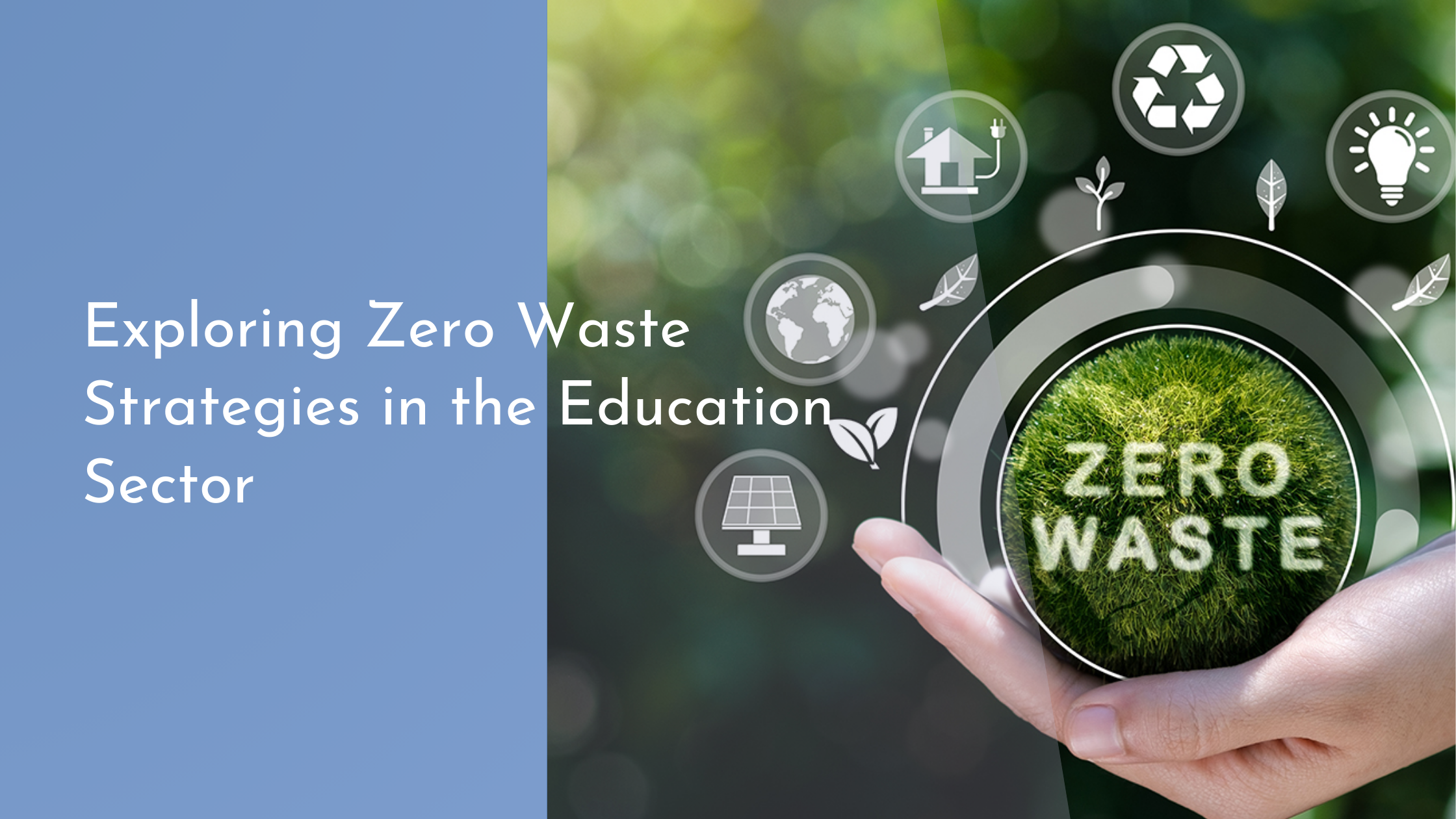Exploring Zero Waste Strategies in the Education Sector
In the quest for a sustainable future, the zero waste movement has gained significant traction across various sectors, including education. As educational institutions strive to cultivate environmentally conscious citizens, the adoption of zero waste strategies has become vital. From reducing waste generation to increasing recycling efforts, schools and universities are exploring innovative ways to minimize their environmental footprint. This article delves into the essence of zero waste principles in education, examines successful waste reduction initiatives, highlights the importance of student engagement, and addresses the challenges and achievements faced by the education sector in this crucial endeavor.
Understanding Zero Waste Principles in Education
The zero waste philosophy is rooted in the concept of resource conservation, aiming to redesign systems to prevent waste and promote the sustainable use of materials. Within the educational context, this involves a comprehensive approach to minimizing waste production, maximizing recycling and composting efforts, and promoting sustainable purchasing practices. Schools and universities adopt zero waste principles by analyzing their waste streams, setting ambitious waste diversion targets, and instilling a culture of sustainability among students and staff.
To effectively implement these principles, it is crucial for educational institutions to understand the sources and composition of their waste. Conducting waste audits provides valuable insights into the types and volumes of waste generated in various campus areas, from cafeterias and dormitories to classrooms and administrative offices. By identifying the primary contributors to waste, institutions can develop targeted strategies to address specific challenges and allocate resources efficiently.
Implementing Waste Reduction Initiatives
Successful waste reduction initiatives in the education sector often start with reducing the use of disposable items. Many schools and universities have turned to reusable alternatives, such as refillable water bottles, washable food containers, and bamboo utensils, to cut down on single-use plastics. Additionally, implementing digital solutions like online course materials and electronic submissions helps decrease paper consumption and fosters an eco-friendly learning environment.
Composting programs are another effective strategy for minimizing organic waste on campus. By introducing compost bins in cafeterias and encouraging students and staff to separate food scraps, institutions can significantly reduce the amount of waste sent to landfills. Partnerships with local farms or composting facilities further enhance these efforts, as collected organic waste is converted into nutrient-rich compost used for landscaping or community gardens.
Engaging Students in Sustainability Efforts
Student involvement is a crucial component of successful zero waste strategies in the education sector. Engaging students in sustainability efforts creates a sense of ownership and accountability, fostering lifelong habits of responsible consumption. Schools and universities often create sustainability clubs or committees, providing students with opportunities to lead initiatives, organize events, and raise awareness about zero waste practices on campus.
Moreover, incorporating sustainability into the curriculum is an effective way to educate students about the importance of zero waste principles. Courses on environmental science, resource management, and sustainable development can inspire students to think critically about their consumption patterns and motivate them to advocate for systemic change. Hands-on activities, like waste sorting challenges and upcycling workshops, further reinforce these lessons, making sustainability an integral part of the educational experience.
Celebrating Successes and Overcoming Challenges
Celebrating the achievements of zero waste initiatives is essential to maintaining momentum and inspiring further action. Many educational institutions host annual events or competitions to showcase their progress and recognize the contributions of students and staff. These celebrations highlight innovative solutions, share best practices, and encourage others to join the zero waste movement, creating a culture of sustainability within the academic community.
Despite the successes, educational institutions face challenges in their journey toward zero waste. Limited funding, resistance to change, and logistical hurdles can hinder the implementation of new programs. However, by fostering collaboration among students, faculty, and staff, and seeking partnerships with local governments and businesses, schools and universities can overcome these obstacles. Continuous evaluation and adaptation of strategies ensure that institutions remain committed to their zero waste goals and continue to make a positive impact on the environment.
The journey toward zero waste in the education sector is both challenging and rewarding. By embracing zero waste principles, implementing effective waste reduction initiatives, and engaging students in sustainability efforts, educational institutions can significantly reduce their environmental impact. While challenges remain, the successes achieved thus far demonstrate the potential for lasting change. As more schools and universities join the zero waste movement, they not only contribute to a cleaner planet but also empower the next generation of environmental stewards to lead the way toward a sustainable future.

